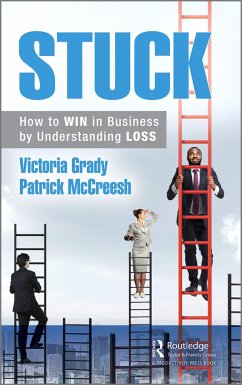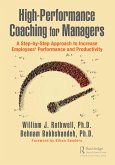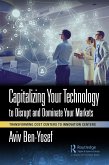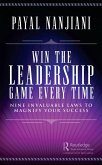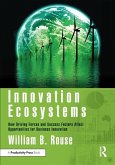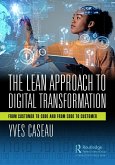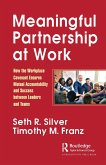Our work life is changing. Every day new companies, technologies, and ideas emerge that impact how, where, and most importantly, why we work. Despite this exciting evolution, people remain the heart of change. People are tricky. People don't seem to evolve as fast as global trends. People get Stuck. Teams have people moving at different speeds with different levels of adoption in our evolving workplace. Some evolve and some don't. Teams get Stuck. Leaders, managers, and teammates struggle with this resistance and get frustrated. Frustrated people impact the performance of every organization. Organizations get Stuck.
Why? The answer is deeply human and biological, rooted in the way our brain interacts with everything in the world, even work. When people feel they are losing something, they react by getting Stuck. Stuck connects over 20 years of research on our brain's reaction to the evolving workplace with real stories of people journeying through the challenge of being Stuck. The organizations, leaders, and managers who understand these concepts will evolve with the future. Those organizations will understand LOSS as a tool to achieve business WINs.
This book addresses a critical concept that closes a gap in other popular business publications. Many books tell leaders and managers the process of how to change their organizations. However, many of these books lack a key mechanism for understanding human interactions. The mechanism is a biological function developed through evolution called attachment - the human need to connect to different tangible and intangible objects for support. Attachment is the reason that people connect with leaders and corporate culture, but also what creates a deep sense of loss during even the smallest changes. Stuck offers a complete understanding of attachment and how it impacts individuals, relationships, and organizations.
The root of the challenge is the human need to connect to different tangible and intangible objects for support. The basis of the need for support is grounded in our need for attachment. Those who learn to understand loss through attachment behavior and the attachments of others will succeed. In addition, this book provides original data-based evidence from assessments conducted with nearly 20,000 respondents and original stories from the application of attachment concepts in more than 150 organizations across all sectors around the globe. It shines a light on attachment and use it as a lens to better understand our workplace.
Stuck is not an academic study. It is a practical guide for leading the brain through change. For the first time, the authors tell stories that demonstrate their research and offer a roadmap for how to leverage attachment research to drive business success.
Stuck provides not only the deep lessons from the authors' research, but clear steps for readers to use the lessons of attachment in their own work. In this way, the book serves as a guide to those leaders, managers, and employees who are ready to be unStuck.
Why? The answer is deeply human and biological, rooted in the way our brain interacts with everything in the world, even work. When people feel they are losing something, they react by getting Stuck. Stuck connects over 20 years of research on our brain's reaction to the evolving workplace with real stories of people journeying through the challenge of being Stuck. The organizations, leaders, and managers who understand these concepts will evolve with the future. Those organizations will understand LOSS as a tool to achieve business WINs.
This book addresses a critical concept that closes a gap in other popular business publications. Many books tell leaders and managers the process of how to change their organizations. However, many of these books lack a key mechanism for understanding human interactions. The mechanism is a biological function developed through evolution called attachment - the human need to connect to different tangible and intangible objects for support. Attachment is the reason that people connect with leaders and corporate culture, but also what creates a deep sense of loss during even the smallest changes. Stuck offers a complete understanding of attachment and how it impacts individuals, relationships, and organizations.
The root of the challenge is the human need to connect to different tangible and intangible objects for support. The basis of the need for support is grounded in our need for attachment. Those who learn to understand loss through attachment behavior and the attachments of others will succeed. In addition, this book provides original data-based evidence from assessments conducted with nearly 20,000 respondents and original stories from the application of attachment concepts in more than 150 organizations across all sectors around the globe. It shines a light on attachment and use it as a lens to better understand our workplace.
Stuck is not an academic study. It is a practical guide for leading the brain through change. For the first time, the authors tell stories that demonstrate their research and offer a roadmap for how to leverage attachment research to drive business success.
Stuck provides not only the deep lessons from the authors' research, but clear steps for readers to use the lessons of attachment in their own work. In this way, the book serves as a guide to those leaders, managers, and employees who are ready to be unStuck.

